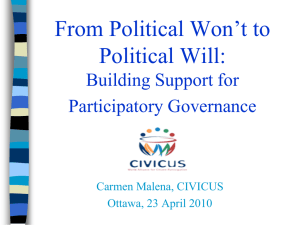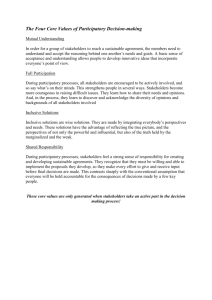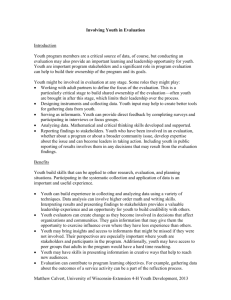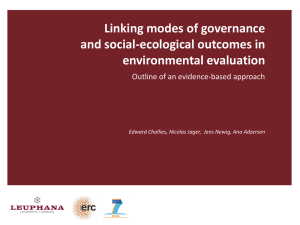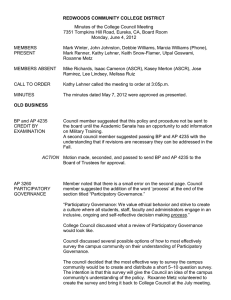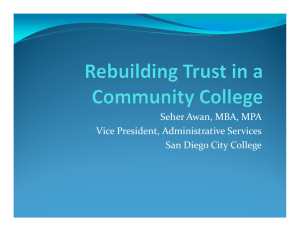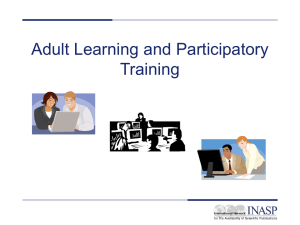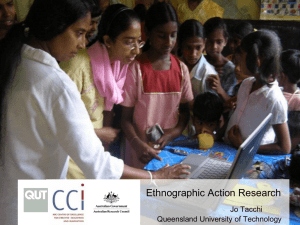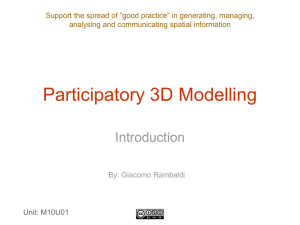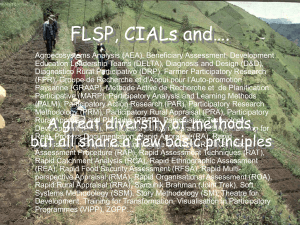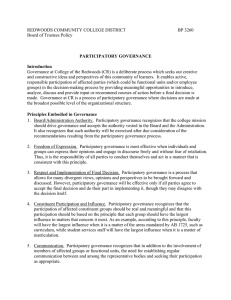Urban Chances - City growth and the
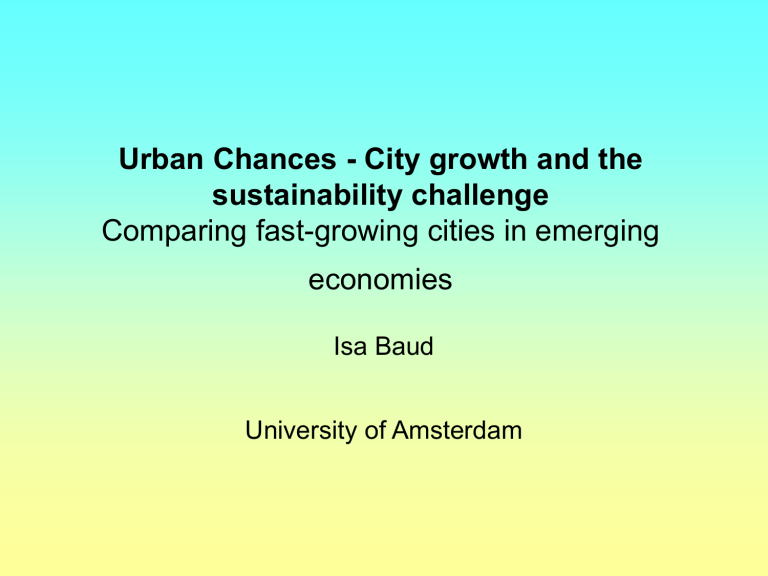
Urban Chances - City growth and the sustainability challenge
Comparing fast-growing cities in emerging economies
Isa Baud
University of Amsterdam
Issues in city growth and sustainble development
• Economic growth through large projects preferred strategy; links to local economies?
• How are social inequality, environmental issues addressed?
• Democratic urban governance and citizenship
• How can participatory knowledge management contribute to more sustainable urban development?
Main focus of project
• how governments and citizens in cities with different patterns of urban economic growth use participatory spatial knowledge management to move urban governance towards more sustainable development (SD)
• Sustainable development, balancing economic growth, social inclusiveness, and environmental sustainability
Scientific goals and approaches
• Comparing variety of political and economic conditions in fast-growing cities
• Comparing inclusive social strategies and environmental approaches and practices conducive to SD
• Develop model on participatory spatial knowledge management in urban governance contributing to SD
• Comparing fiscal autonomy as support mechanism
• ten cities across four countries (India, South Africa, Peru and Brazil)
• Methodology: city case studies, including inter-active knowledge building with local communities, practitioners
Specific topics within programme
• impact of large economic projects vis-à-vis local economies in fast growing cities;
• analysing politics and policy addressing urban inequality
(CSO networks, campaigns on sub-standard settlements);
• environmental risk assessment and inclusive scenariobuilding: combining “brown” and “green” agenda;
• participatory spatial knowledge models in democratic urban governance networks for SD; and
• combining fiscal decentralization and participatory budgeting in supporting SD policies, monitoring and implementation
Partners
European Association of Development Research and Training Institutes
EADI
Amsterdam Institute for Metropolitan and
International Development Studies
AMIDST
CNRS
French National Center for Scientific Research
School of Planning and Architecture SPA
Cities for Life Forum FORO
Centro Brasileiro de Análise e Planejamento
CEBRAP
Norwegian Institute for Urban and Regional
Research
University of KwaZulu-Natal
NIBR
UN-Habitat – partner in dissemination
UKZN
UN-HABITAT
Research partnership
• North-South research partnership
• peer network and joint elaboration of programme contents
• Co-management of activities and WPs
• Fairly shared funding across participating institutions
• Working with civil society organisations, local communities for exchange and dissemination
• Working with UN agencies, other research networks right from the start (e.g. future megacities research)
Objective for programme impact
• Second objective maximizing the impact of the program by interaction, exchanges and disseminating research results with various actors
• Local governments and their networks
• Civil society organisations
• Research and higher education institutions
Major activities
• research on specific topics, including country workshops with local stakeholders and policymakers
• publications through Working Papers, Country reports and thematic reports, and final collective publication
• yearly conferences linking researchers and policymakers in the countries concerned
• policy briefs and opinion papers for policymakers and wider lay audience
• start and end conference in South Africa and
Brussels promoting attention for objectives and results to policymakers, civil society and research communities
